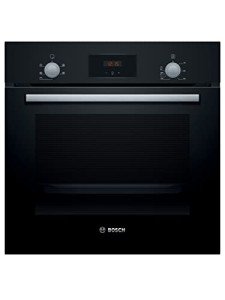The Comprehensive Guide to Built-In Ovens: Features, Benefits, and Considerations
In the realm of contemporary kitchen style, built-in ovens have become a popular option for property owners and chefs alike. They provide both functionality and visual appeal, mixing effortlessly into kitchen cabinetry and enabling a more structured kitchen environment. This short article explores the numerous aspects of built-in ovens, including their types, advantages, setup factors to consider, and upkeep.
What is a Built-In Oven?
A built-in oven is an appliance that is integrated into the kitchen cabinets instead of being a freestanding system. This type of oven can be available in various kinds, consisting of wall ovens and under-counter ovens, which can be combined with other appliances for a cohesive look.
Types of Built-In Ovens
When thinking about a built-in oven, it's necessary to comprehend the various types readily available. Below is a list of common built-in oven types:
Single Wall Ovens:
- A standalone system that inhabits one section of the wall.
- Perfect for smaller cooking areas that need a compact cooking solution.
Double Wall Ovens:
- Two different cooking compartments stacked on top of each other.
- Perfect for large families or those who regularly entertain.
Microwave Wall Ovens:
- Combines a built-in microwave function with a conventional oven.
- Uses benefit and extra cooking choices.
Steam Ovens:
- Uses steam for cooking, which can help retain nutrients in food.
- Suitable for healthier cooking techniques.
Convection Ovens:
- Features a fan that distributes hot air, enabling even cooking.
- Suitable for baking and roasting.
Secret Features of Built-In Ovens
Built-in ovens featured a range of features to boost cooking experiences. Some of the most common features consist of:
- Self-Cleaning Functions: Many modern-day ovens have a self-cleaning choice that utilizes high heat to burn off food residue.
- Smart Technology: Wi-Fi-enabled built-in ovens can be controlled from another location through mobile phones for included convenience.
- Multi-Cooking Functions: Versatile settings such as baking, broiling, roasting, and even air frying are typical in newer designs.
- Thermal and Convection Cooking: The option of utilizing either heating approach allows for numerous cooking styles depending upon the meal.
Advantages of Built-In Ovens
The advantages of built-in ovens surpass mere aesthetics. Here are some advantages:
- Space-Saving: By incorporating the oven into kitchen cabinetry, built-in ovens can conserve important kitchen area.
- Boosted Kitchen Design: These ovens offer a streamlined, modern-day look and can complement other kitchen appliances and kitchen cabinetry.
- Ease of access: Wall ovens can be installed at a height that is comfortable for users, minimizing the stress of flexing down to access a conventional oven.
- Increased Property Value: A well-designed kitchen featuring built-in appliances can increase the resale worth of a home.
Installation Considerations
When preparing to install a built-in oven, several elements must be considered:
- Space Requirements: Ensure that the wall or cabinet space assigned can accommodate the dimensions of the oven.
- Electrical Supply: Built-in ovens typically need particular electrical outlets, particularly for large or high-powered designs.
- Ventilation: Proper ventilation should be accounted for to ensure the home appliance operates effectively and safely.
- Expert Installation: It is advisable to work with experts for setup to make sure that the oven is securely installed and operating properly.
Upkeep Tips for Built-In Ovens
Appropriate maintenance will make sure that a built-in oven runs efficiently and lasts longer. Here are some maintenance pointers:
- Regular Cleaning: Wipe down the interior and outside after each usage. Utilize the self-cleaning function as needed.
- Examine Seals and Gaskets: Periodically examine the door seals for wear and tear to keep energy efficiency.
- Calibrate Temperature Settings: Use an oven thermometer to check temperature precision and make modifications as needed.
- Consult the Manual: Follow the producer's directions for maintenance and care standards to extend the lifespan of the appliance.
Often Asked Questions (FAQs)
1. Just how much does a built-in oven generally cost?
The price of built-in ovens can differ widely, ranging from ₤ 500 for standard designs to over ₤ 5,000 for high-end variations.
2. Are built-in ovens energy-efficient?
Numerous built-in ovens are developed with energy-efficient features. Inspecting for the Energy Star label can be helpful in choosing an energy-efficient model.
3. Do built-in ovens need special setup?
Yes, built-in ovens often need specific setup that may include cabinets modifications and electrical work. built in oven and hob is advised to have a professional deal with installation.
4. Can I change a freestanding oven with a built-in oven?
Yes, however it may require modifications to the kitchen cabinetry and electrical supply to accommodate the brand-new built-in design.
5. What should I think about when selecting a built-in oven?
Consider size, type, functions, and warranty when picking a built-in oven. Investigating various brand names and models can also assist in making an informed decision.
Built-in ovens represent a blend of benefit, design, and performance in modern-day kitchens. With different types and functions available, they use solutions for diverse cooking requirements and visual preferences. Rigorous upkeep, thoughtful installation, and careful selection can all contribute to a satisfying cooking experience with a built-in oven. As kitchen designs continue to develop, these appliances will unquestionably stay a staple in culinary areas globally.
| Function | Description |
|---|---|
| Type | Single, Double, Steam, Convection |
| Self-Cleaning | High heat cleaning function |
| Smart Technology | Remote control through smart devices |
| Multi-Cooking Functions | Baking, Roasting, Broiling |
| Energy Efficiency | Lots of designs designed with energy-saving functions |
By equipping oneself with the ideal understanding, any property owner can make informed options that line up with their particular kitchen requirements, making sure that the built-in oven is one of the very best appliances in their cooking collection.

